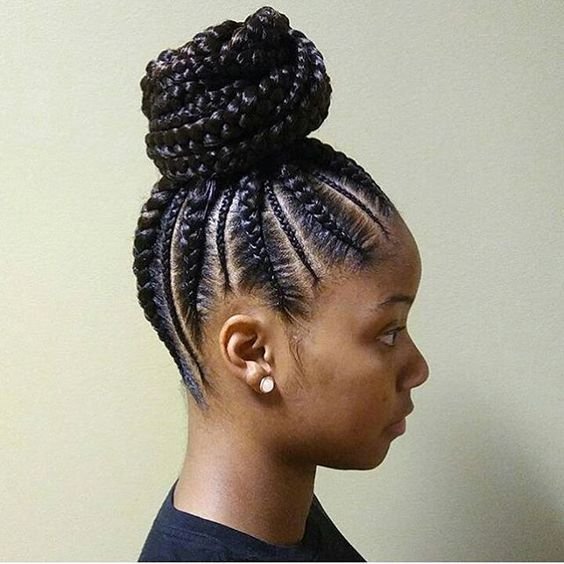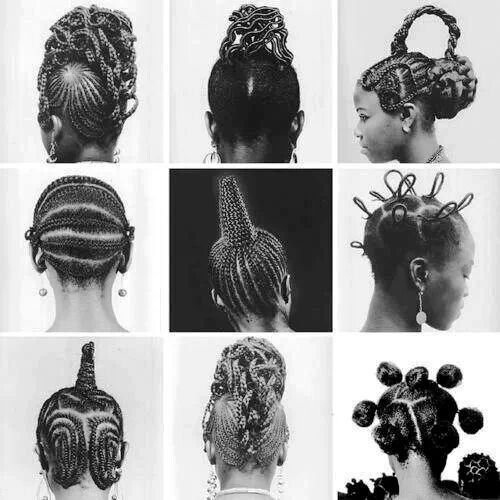The traditional Yoruba hairstyles are one dashing thing the Yoruba women of Southwest Nigeria are known for. The Yoruba people belong to one of the three major ethnic groups in Nigeria. The hairstyles rocked by their women shows creativity, style and beauty which makes up part of the Yoruba culture. Women who makes these traditional Yoruba hairstyles are referred to as ‘Onidiri’ in the Yoruba language.
Traditional Yoruba Hairstyles Naming and Significance
Traditional Yoruba hairstyles are influenced by their history and folklore, traditional and even modern designs of things/images in their surroundings which are grouped by styling. These traditional Yoruba hairstyles shows the style and beauty of the people before the advent of human hair brought from other parts of the world such as Brazil, Peru, India, and so on.
Although some of the Yoruba women still rock these traditional Yoruba hairstyles, various types of human hair and wigs are now been used to cover some of these styles like ‘adimole’ and relegated to secondary hair. These traditional Yoruba hairstyles are either handmade plaited hair known as ‘Irun didi’ and hair tied with thread or braided known as ‘Irun kiko’ by the Yoruba people.
The traditional Yoruba hairstyles are not expensive when compared to the modern hairstyles but are unique when adorned by the Yoruba women. Comb, local cream (including ‘ori’ a local pomade) and plastic plaiting threads are the main tools used for making these traditional Yoruba hairstyles by the hairstylists.
Traditional Yoruba Hairstyles_ Top 10 Styles for Women

Traditional Yoruba hairstyles which you can tell your hairstylist to make for you so as to standout in your next ‘owanbe’ party are listed here. They are as follows:
- Shuku: This particular hairstyle is named as a result of the hump formed on top of the head after braiding the hair. There are many variations of this popular hairstyle. It is adorned by school girls, young ladies, and married women. It can also be of different types with several plaiting by the sides.
- Patewo: This traditional Yoruba hairstyle is plaited like a hand made to clap. ‘Patewo’ means ‘to clap’ so the hairstyle. It is adorned by female of all ages and social status.
- Agogo: This means ‘bell’ in English. The hair is therefore plaited to look like a ‘church bell’. The sides are plaited while the uniqueness i.e. the bell is formed with the plastic plaiting threads.
- Abeti Aja: This hairstyle is made to look like a ‘dog’s ear’. There’s also a Yoruba traditional cap styled this way. The natural hair is divided into section before using the plastic plaiting thread to make it form a ‘dog ear’ which drops down by the two sides of the head.
- Eko Bridge: This hairstyle is used to represent a bridge in Lagos (Eko), Nigeria. The hair is divided into 10 or 11 sections. The thin braids are then twisted to form a bridge-like point above the head. The married women are known to rock this style more as it looks more complicated for younger females.
- Onile Gogoro: This is a made as a result of the designs seen in the environment by the Yoruba people. ‘Onile Gogoro’ means ‘a very tall building’. Hence, this style is formed by twisting the hair to form a tall building like a skyscraper.
- Roundabout: In this type of traditional Yoruba hairstyle, the hair is made to look like a roundabout. Using plastic plaiting threads, the long strands of hair are woven into a circular design like a roundabout.
- Aro Meta: This symbolizes trinity i.e. three equal things. The hair is woven to form three humps on the head; a hump at the front and two at the back of the head.
- Ade-Oba: This style is made to look like a crown. ‘Ade-Oba’ literally means ‘King’s crown’. you will definitely love this when seen on a queen. This style signifies royalty.
- Kojusoko: This hairstyle is made by plaiting the hair with a plastic plaiting threads which have all of its long strands directed to the front. The stylists create this and name it ‘Kojusoko’ which means to ‘face the husband’. The men definitely love it when their when pay obeisance to them so you have to rock this for your husband.
There are several other styles such as Ipako elede, Ere, Panumo and so on. You just have to pick one of these traditional Yoruba hairstyles and get your hair done for the week. You just have to be unique no matter what. Thanks for reading this piece.

